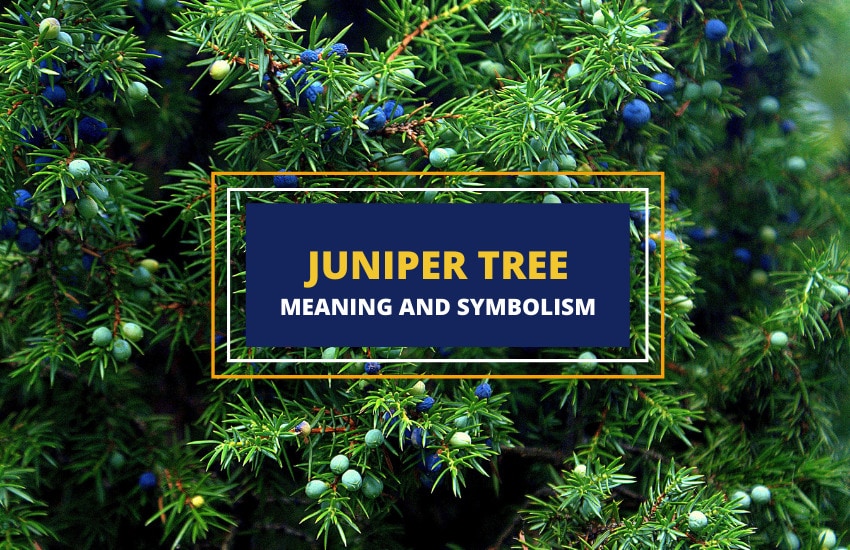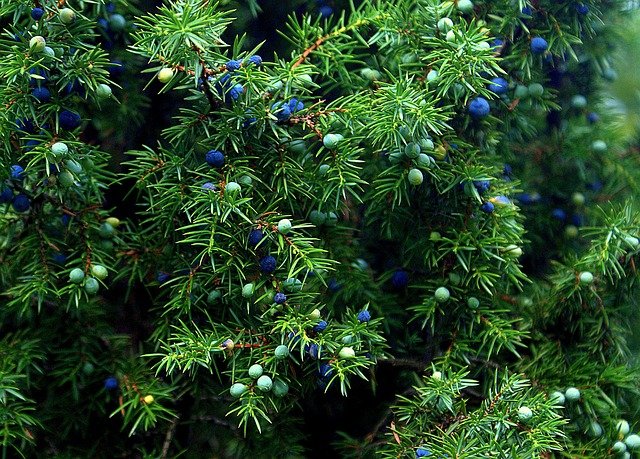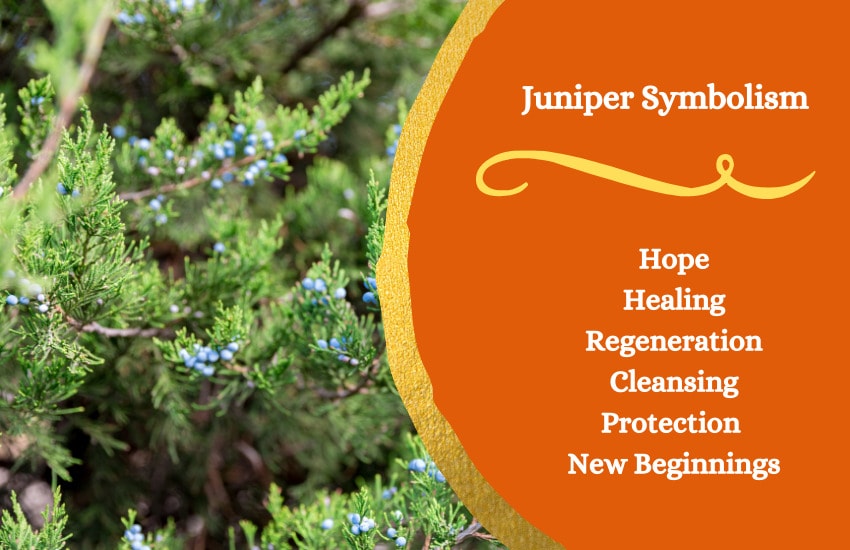
Table of Contents
Juniper is an evergreen shrub that is a great addition to any landscaping project. Aside from having a defined and distinct structure, it has a fragrant smell that other plants cannot compete with. In addition, they are extremely easy to maintain because they retain their attractive shape even when they are not pruned often, and they can tolerate even the harshest growing conditions.
Juniper is also known for its symbolic meanings, which it has acquired over the years. If you’re thinking of adding some juniper shrubs in your garden or you’re just curious about what they symbolize, you’re in the right place. Read on to learn more about this hardy yet beautiful plant.
All About Juniper
Junipers are conifers that belong to the Cypress family. They have short, spiky leaves that accentuate their eye-catching and sprawling foliage. Their fragrant leaves are usually made up of overlapping scales or needles, with some shrubs having both types because they start as needles and turn into scales as they grow older. They thrive in moors, pine woods, and coastal areas, with some of them even managing to grow in England’s limestone grasslands.
While junipers are common in Britain, their population has continued to shrink, with some of its natural habitats almost disappearing completely. In the Atlas Mountains, for example, junipers have suffered habitat loss because of the heavy livestock activity and wood removal in the area.
Historical records show that junipers date back 10,000 years and might have been the first tree species that grew in the UK after the Ice Age. Since junipers have been around for quite such a long time, people have learned to use them in various ways.

Here are some of the most popular ways it is used around the world:
- Cooking – Junipers are excellent spices that are used in a wide variety of culinary dishes. They are best known to add flavor to gin and certain meat dishes like venison, veal, and even rabbit. Juniper-based spirits are made with a combination of fermented juniper berries and water and are often sold as brandy in eastern Europe.
- Aromatherapy – Extracted from juniper berries, this essential oil is recognized in alternative medicine because of the different health benefits it brings. People love the woody yet clean smell of juniper because they have a calming effect, and they can get rid of bad odors. Some even create essential oil blends that are applied topically or even ingested to promote healthy kidney function.
- Ancient Traditions – Junipers are tough yet flexible, making them a perfect material for bows and arrows. Native American tribes in the Great Basic region used their wood to create bows and arrows for hunting. In addition, they have been used in Gaelic Polytheist rites, where people blessed households and protected their people by burning juniper and using its smoke to perform customary rites.
Meaning of the Name Juniper
In 2011, Juniper became one of the top 1,000 given names in the United States and gained even more popularity as it was used in fictional works like The Life and Times of Juniper Lee, an animated series in the US, and Benny & Joon, a romantic comedy released in 1993. While the name is commonly used for girls, it has been used for boys’ names as well.
Juniper’s rise to popularity was not only because it had a nice ring to it but also because it had particularly interesting symbolism. For example, in the Renaissance period, Leonard da Vinci made a portrait of Ginevra de’ Benci with a juniper tree in her background. Historians suggest that the painting alluded to her chastity as well as her name’s similarity to the Italian word ginepro which also meant juniper.
Moreover, Margaret Wise Brown, an American author of children’s books, used Juniper Sage as her pen name. Some of her most famous works include the books The Runaway Bunny and Goodnight Moon. Critically acclaimed for her work in literature, she was eventually called the Laureate of the Nursery.
Junipers in the Bible
Juniper has been mentioned in several Bible verses, but two of them specifically stand out. In the Old Testament, it is said that a juniper tree protected the prophet Elijah from Jezebel’s wrath, allowing him to flee for his life when she swore to have him killed.
A non-canonical account in the 6th century also mentioned how the Virgin Mary and Saint Joseph hid behind a juniper to protect baby Jesus from King Herod’s soldiers.
Saint Juniper, also known as the jester of the Lord, may have inspired those who have named their children Juniper. St. Francis once described a perfect friar as someone who was as patient as Saint Juniper, a person who did everything he could to always follow Christ and the way of the Lord.
Juniper Symbolism and Meaning
Since junipers are considered conifers, they technically don’t produce flowers but seeds and cones. They usually start blooming from January to April, with other varieties having a second bloom time that can last from September to December. Male juniper flowers are not as showy as their female counterparts, with female ones producing green, berry-like cones that turn blue or purple as they ripen.
Junipers may symbolize many things, but here are some of their most popular interpretations:
- Hope and Faith – Juniper berries are believed to be a staple during winters. This is especially true for birds and mammals that feed on juniper berries during tough winter months. This has led people to associate juniper berries with hope, comparable to someone clinging to hope during the darkest of winters.
- Healing and Regeneration – Since junipers can easily grow in places where other plants can’t survive, it also symbolizes a sense of healing. It was also used to protect people from plagues and negative energies during ancient times, making it a perfect reflection of its healing qualities.
- Cleansing and Protection – Junipers are also recognized as symbols of purification and protection. Like how a juniper shrub protected baby Jesus and the prophet Elijah, juniper berries are used in cleansing rituals that are meant to protect people from evil forces. They have been traditionally used in ancient medicine to ward off infections and in ceremonies that involve putting someone under another’s protection.

When to Give Junipers
Junipers are great gifts to beginner and expert gardeners alike. Because they are mostly considered a symbol of protection and new beginnings, they are excellent housewarming gifts for people who just moved to their new home. They are also easy to care for and they never lose their attractive shape so they would look great in any landscape project.
When you give someone juniper, make sure to tell them that they need to be placed in areas with light shade or full sun. They don’t do well in low-light areas because their branches tend to spread apart to absorb more sunlight. This may damage their shape and make them look lopsided.
Wrapping Up
Whether you just like the name juniper or you’re thinking of adding some juniper shrubs in your garden, knowing what they symbolize will add more meaning and complexity. The good news is that junipers represent positive things in general, so there’s really nothing to worry about if you’re thinking of buying some for yourself or gifting them to someone you know.








